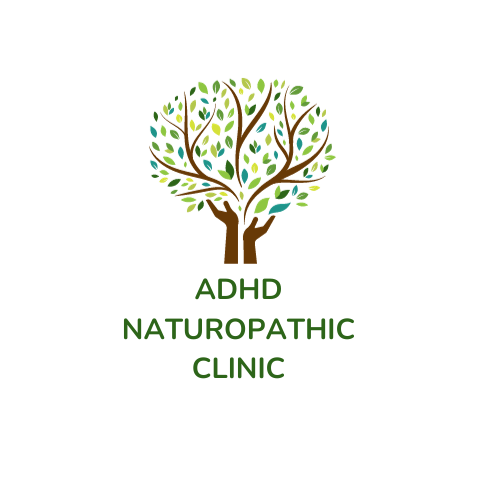The relationship between mold exposure and neurodevelopmental conditions such as ADHD (Attention Deficit Hyperactivity Disorder) and autism spectrum disorders (ASD) is a topic that has gained attention in recent years. While research in this area is ongoing, some studies have explored potential links between mold exposure and these neurodevelopmental disorders. As an Herbal Naturopath, it's important to consider these findings within the context of holistic well-being and natural approaches to health.
-
Mold-Related Toxins and Neurological Effects: Research suggests that mycotoxins produced by molds may have neurotoxic effects, potentially impacting the central nervous system. These toxins can be found in indoor environments with mold growth, and exposure may contribute to neurological symptoms (1). In the context of ADHD and autism, understanding the potential impact of these toxins is essential.
-
Immune System Dysregulation: Mold exposure can trigger immune system responses, and immune system dysregulation has been linked to neurodevelopmental disorders. Some studies propose that inflammatory processes related to mold exposure may contribute to the development or exacerbation of ADHD and autism (2). Considering the interconnectedness of the immune system with neurological health is crucial in holistic approaches.
-
Genetic Susceptibility: Individuals with certain genetic predispositions may be more susceptible to the effects of mold exposure. Genetic factors have also been implicated in the risk of ADHD and autism. Exploring the interplay between genetic susceptibility and environmental factors, including mold exposure, provides a comprehensive perspective on neurodevelopmental conditions (3).
-
Gut-Brain Axis: Both mold exposure and neurodevelopmental disorders have been associated with disruptions in the gut-brain axis. The gut microbiome plays a crucial role in overall health, including neurological function. Addressing gut health through natural approaches, such as dietary interventions and herbal remedies, may be beneficial in a holistic health strategy (4).
-
Holistic Approaches: As an Herbal Naturopath, my approach involves considering the whole person. Addressing mold-related issues, if present, may include environmental remediation, supportive herbal therapies, and lifestyle adjustments. Simultaneously, focusing on supporting overall neurological health through nutrition, stress management, and herbal remedies is essential for individuals with ADHD or autism.
In conclusion, while the relationship between mold exposure and ADHD/Autism is an area of interest, it's crucial to approach it with a holistic mindset. Integrating natural approaches, such as herbal remedies and lifestyle adjustments, can complement traditional interventions. If you are concerned about mold exposure and its potential impact on neurodevelopmental conditions make an appointment with us to discuss.
Herbal Naturopathic/Nutritional Appointments - in Person and On line
Embark on your holistic healing journey by scheduling an appointment with us at ADHD Naturopathic Clinic (formerly The Green Gingko). As an Herbal Naturopath specializing in ADHD, genetic mutations, and various health issues, we offer personalized, comprehensive consultations tailored to your unique needs. Our approach integrates traditional knowledge with modern understanding, emphasizing the interconnectedness of mind, body, and spirit. Whether you're seeking support for ADHD, exploring genetic mutations, or addressing chronic conditions, we're committed to guiding you towards optimal well-being. Together, let's unravel the intricacies of your health, incorporating herbal remedies, lifestyle adjustments, and evidence-based practices. Take the first step towards a balanced and vibrant life—book your appointment today and embark on a transformative journey towards holistic healing.
References:
- Rea, W. J., Didriksen, N., Simon, T. R., Pan, Y., Fenyves, E. J., Griffiths, B., & Ross, G. H. (2003). Effects of toxic exposure to molds and mycotoxins in building-related illnesses. Archives of Environmental Health, 58(7), 399–405.
- Kilburn, K. H., & Thrasher, J. D. (2011). Immune response to mycotoxins and immune deficiency syndrome. Archives of Environmental Health, 56(3), 262–267.
- Ciaccio, C. E., & Barnes, C. (2018). Childhood autism and allergies: An Italian perspective. Italian Journal of Pediatrics, 44(1), 131.
- Finegold, S. M., Molitoris, D., Song, Y., Liu, C., Vaisanen, M. L., Bolte, E., McTeague, M., Sandler, R., Wexler, H., Marlowe, E. M., Collins, M. D., Lawson, P. A., Summanen, P., Baysallar, M., Tomzynski, T. J., Read, E., Johnson, E., Rolfe, R., Nasir, P., Shah, H., ... Jousimies-Somer, H. (2002). Gastrointestinal microflora studies in late-onset autism. Clinical Infectious Diseases, 35(Supplement_1), S6–S16.

